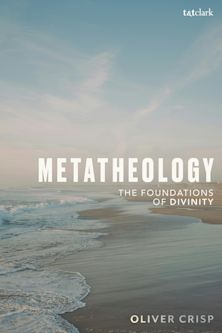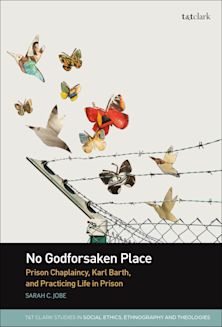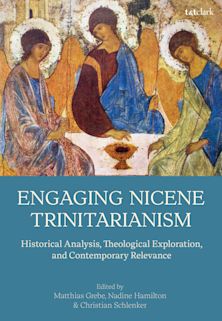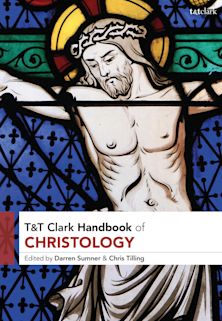- Home
- ACADEMIC
- Theology
- Systematic Theology
- Modern Christian Theology
Inspection copy added to basket
Choose your preferred format. If you would prefer an ebook and it is not displayed below, please visit our inspection copies page.
Please note ebook inspection copies are fulfilled by VitalSource™.
Buy from Bloomsbury eTextBooks
You are now leaving the Bloomsbury Publishing website. Your eBook purchase will be with our partner https://www.vitalsource.com.
Your credit card statement will show this purchase originating from VitalSource Technologies. They will also provide any technical assistance you might require.
You must sign in to add this item to your wishlist. Please sign in or create an account
Description
Christopher Ben Simpson tells the story of modern Christian theology against the backdrop of the history of modernity itself. The book tells the many ways that theology became modern while seeing how modernity arose in no small part from theology. These intertwined stories progress through four parts.
In Part I, Emerging Modernity, Simpson goes from the beginnings of modernity in the late Middle Ages through the Protestant Reformation and Renaissance Humanism to the creative tension between Enlightenments and Awakenings of the eighteenth-century. Part II, The Long Nineteenth-Century, presents the great movements and figures arising out of these creative tension - from Romanticism and Schleiermacher to Ritschlianism and Vatican I. Part III, Twentieth-Century Crisis and Modernity, proceeds through the revolutionary theologies of period of the World Wars such as that of Karl Barth or novuelle theologie; this part includes a thorough section on modern Eastern Orthodox theology. Finally, Part IV, The Late Modern Supernova, lays out the diverse panoply of recent theologies - from the various liberation theologies to the revisionist, the secular, the postliberal, and the postsecular.
Designed for classroom use, this volume includes the following features:
- boxes/chart/diagrams/visual organizations of the information presented included throughout: e.g. lists of key points, visual organizations of systematic ideas in a given thinker, lists of significant works, lists of significant dates, brief outlines of the basic structure of some major theological works
- both a one-page chapter title table of the contents and an expanded(multipage) table of contents
- chapter at-a-glance overview/outline at the beginning of each chapter
- specific references to secondary works and key primary works in Enqlish translation at the end of chapters
Table of Contents
List of Images and Figures
Introduction
PART I: EMERGING MODERNITY
Chapter 1: The Middle Ages and the Lost World
Chapter 2: Reformation and Humanism: 1400-1650
Chapter 3: Enlightenments and Awakenings: 1650-1800
Chapter 4: Kant
PART II: THE LONG NINETEENTH CENTURY
Chapter 5: Romanticism: 1800-1850
Chapter 6: Schleiermacher
Chapter 7: Hegel and Hegelians
Chapter 8: Coping with the Nova
Chapter 9: Early-Nineteenth-Century Catholic and Anglo-Catholic Theology
Chapter 10: Ritschlianism
Chapter 11: Late-Nineteenth-Century Catholic Theology
PART III: TWENTIETH-CENTURY CRISIS AND MODERNITY
Chapter 12: Kierkegaard and Nietzsche
Chapter 13: Barth
Chapter 14: Bultmann and Tillich
Chapter 15: Early-Twentieth-Century Catholic Theology
Chapter 16: Twentieth-Century Eastern Orthodox Theology
Chapter 17: Conservative Protestants in America
PART IV: THE LATE MODERN SUPERNOVA
Chapter 18: Later Twentieth-Century Catholic Theology
Chapter 19: Liberation Theologies
Chapter 20: Revisionist and Secular Theologies
Chapter 21: Postliberal and Postsecular Theologies
Index
Product details
| Published | 09 Jan 2020 |
|---|---|
| Format | Ebook (Epub & Mobi) |
| Edition | 2nd |
| Extent | 416 |
| ISBN | 9780567688460 |
| Imprint | T&T Clark |
| Publisher | Bloomsbury Publishing |
About the contributors
Reviews
-
From Hegel to Barth and Bultmann to revisionist and secular theologies, Simpson has supplied the clearest textbook yet in this field and has brought the debates up to date and situated them within a wider global and postcolonial framework than is the case with many of the other books in this field. I don't just heartily recommend it - this book will be the primary point of reference for my lectures and seminar discussions in the years ahead.
Chris Deacy, University of Kent, UK



































